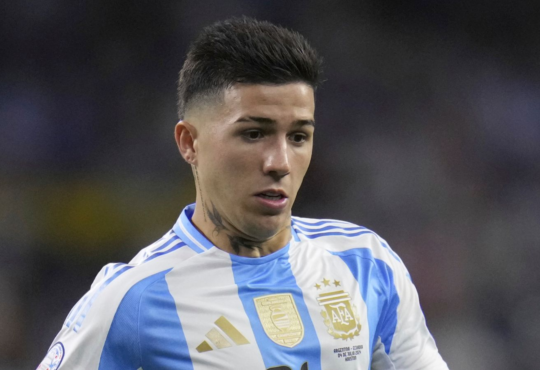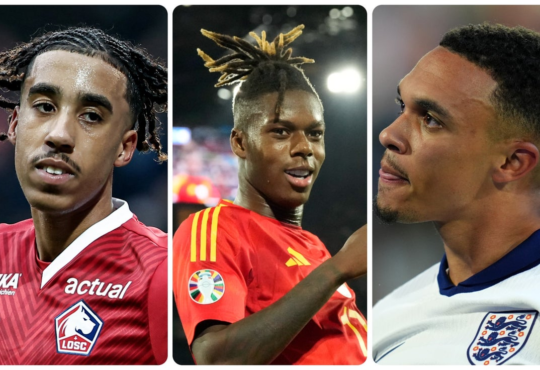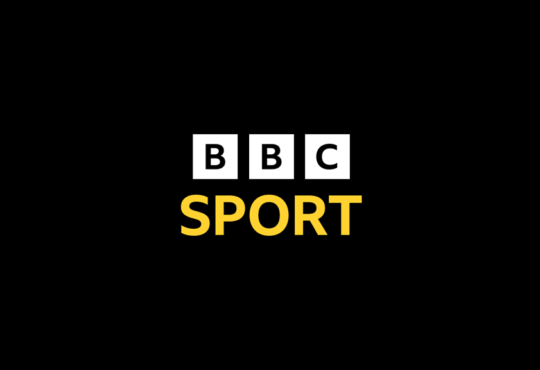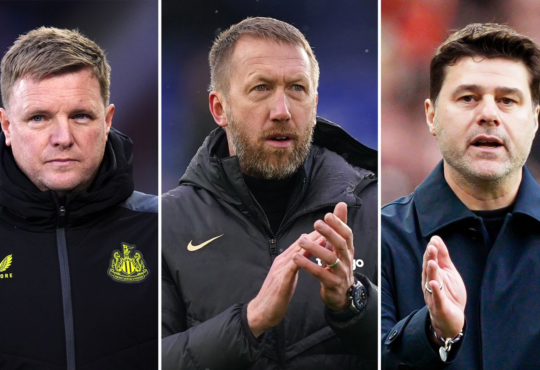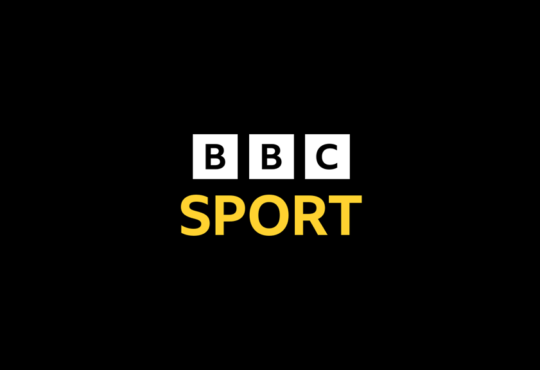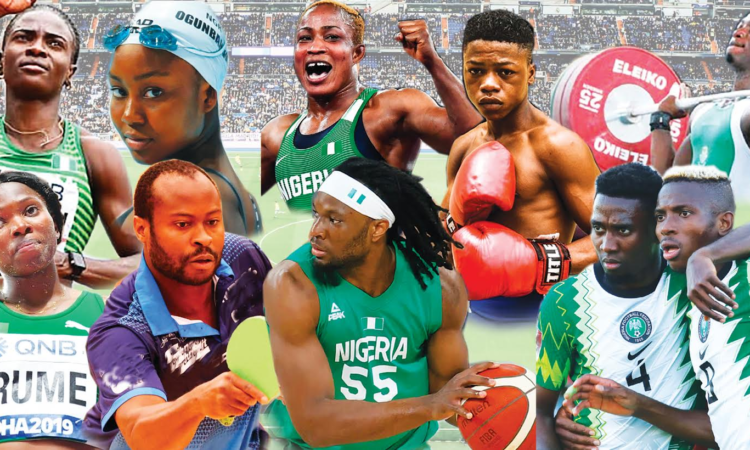
Nigerian Sports and its untapped resources
For far too long, Nigeria has failed to take advantage of its enormous human resources to conquer the sports world and create an enabling environment for sports business to thrive. While nations are hosting international competitions to declare profits afterward, Nigeria does that at a loss due to official corruption. Frustrating private investors in sports is routine and the process is constantly opaque. Christian Okpara, paints a portrait of how the country has lost billions in revenue yearly through neglect of sports.
Across the world, the sports sector’s labour and income-generating capacities are never in doubt. This timeless truism is further confirmed by the millions of young men and women, as well as, many others that make a living leveraging on its offerings.
In some climes, a sports stadium employs thousands of people, ranging from athletes, coaches, medical and sundry officials, and business operators, all of whom benefit from the periodic activities in the arena, either in terms of salaries, or the sale of their Goods and services.
Reports published by statista.com, which surveyed “income distribution of sport in England, from 2014/15 to 2020/21,” indicate that the total income generated by sports, including grants-in-aid, grants received, national lottery income, and other income, ranged from £83.222 billion in the 2014/15 season to £222.150 billion in 2020/21 circle.
According to the study, there are streams of income that cannot be quantified as it is difficult to measure such earnings. These include revenue generated by pubs and allied entertainment providers during games and other sporting activities.
In the 2021/22 season, the English Premier League (EPL) generated a record £5.455 billion in revenue. This was up 12 per cent from £4.869 billion that it did in 2020-21, and is expected to rise to around £5.75 billion when results for the most recent 2022-23 season are published.
Nottingham Forest’s Nigerian striker Taiwo Awoniyi controls the ball during the English Premier League football match against Chelsea. Photo: AFP
From this revenue, according to Statista, English Premier League clubs pay their players an average of £2.87 million per year. This equates to an average weekly salary of around £55,000 for players. Manchester United players are the biggest earners in the league, with their playing staff taking home an average of £7.19m per year, while Nottingham Forest, which has Nigeria’s Taiwo Awoniyi, pay their players an average of £1.9m per year.
The United States National Basketball Association (NBA) championship, which is the highest level of basketball in the world, generates billions of dollars yearly, with the players and managers earning millions of dollars in a season that lasts not more than eight months.
In the 2021/22 season, the average revenue per team in the NBA was $334.1 million, with the players earning an average of $8.5 million.
Apart from Britain and the U.S., sports in all the developed countries of the world is big business that has turned children from poor homes into billionaires leveraging their talents to make fantastic money.
Nowadays, sports mean big bucks for all stakeholders. Whether they are sportspersons, corporates, advertisers, or the sports bodies tasked with administering the game, all of them stand to gain from the infusion of big deals that have become the norm rather than the exception.
Many countries that understand the power of sports have turned even the least commercialised sports into money-spinning ones for the benefit of all stakeholders.
Thus far, sports have since moved from the 1970s and 1980s when they were played just for entertainment, and turned commercial when spectators became willing to pay to watch, or lap up advertisements on television, especially when advertisers see huge sums to be made in promoting their brands during major sporting events, which in turn give the players benefits from these aspects.
Multi-sports fiestas like the Olympic Games and football’s World Cup, among others, are all events that bring out the moneybags, who endorse brands, players, and teams, as well as goods, associated with such events.
Ibrahim Musa Gusau
Politicised business of sports
Sadly, while the whole world is lapping up the humongous wealth in the sports sector, Nigeria is still blind to these fortunes, while still treating sports as a social responsibility organ managed by government officials, some of whom know next to nothing about how to develop it or effectively harness its potential N500 billion worth of yearly revenue.
In some cases, the government sees the sector as something to farm out to political loyalists for their support during elections. So, yearly, the government makes budgetary provisions for the sector without expecting any returns on such investments.
Nigeria is one of the few remaining countries in Africa that does not invest in sports for profit. While so many nations of the world, including South Africa and Morocco, bid to host competitions to gain profits from investing in facilities and organisation of such events, Nigeria is on record as the only country in recent times to have spent more than it earned in hosting international events.
Nigerian sports clubs including football, basketball, handball, and athletics sides are owned and run 80 per cent by states, with the private sector playing an important role in such events. While the English Premier League and the NBA are private-sector driven, the competitions in Nigeria are still tied to the apron strings of government, which can dissolve the clubs’ management at will.
In the past, there were attempts by some individuals and organisations to bring professionalism in Nigerian sports in line with what is obtained in other countries. But such efforts were frustrated by government officials, who perceived them as actions that were capable of driving them out of their gold mine.
In the 1980s and early 1990s, the late Pillar of Sports, Chief MKO Abiola, and some other businessmen tried to start a professional football league to be managed by the private sector. But their bid ultimately failed as the government frustrated their efforts with rules that negated their investments in the game. It got so bad that the businessmen, including Abiola and the Leventis Group, among others, were forced to disband their football clubs.
DTigress
Nigerian basketball with about 70 per cent private sector-owned clubs has been enmeshed in a crisis allegedly engineered by “government-backed” individuals over the leadership of the ruling body, the Nigerian Basketball Federation (NBBF).
However, such a crisis and the impediments that it constitutes to professionalism in Nigerian sports are expected to be addressed by the Nigerian Sports Industry Policy proposed by the immediate past Sports Minister, Sunday Dare.
According to Dare, who set up a committee to draw up guidelines that would usher professionalism into the sector and turn it into big business, the policy would lure the hitherto uninterested business community into investing in sports, knowing that such investments would ultimately generate profit for them, as well as create employment opportunities for many Nigerians.
To run initially from the 2022-2026 cycle, the National Sports Industry Policy (NSIP) creates a healthy environment for businesses to thrive. First developed in 1989, revised in 2003, 2009, and 2018 and metamorphosed into what it is today, the new Policy has the potential to create new opportunities, new challenges, and new prospects for sports development, improvement, and sustainability in the country.
The Nigeria sports audience (youth and adults) is about 120 million. This creates a market for sports business, allowing the Federal Government to consider placing a high priority on sports development, improvement, and sustainability.
While many industrialised countries have leveraged the power of sports to promote national development, cohesion, peace, unity, and improve diplomatic relations, Nigeria is yet to come to such realisation.
Be that as it may, because sports is not one of the primary industries that statisticians consider when measuring the country’s GDP, it is difficult to determine how much it contributes to the country’s GDP.
Below par performance
But available figures indicate that sports contributed 0.19 per cent, 0.31 per cent and 0.33 per cent to Nigeria’s GDP in 2019, 2020 and 2022 respectively due to inadequate funding and effort. This poor performance is because the sector is still included in the leisure and recreation sector.
Bala Akintunde of 3SC of Ibadan challenges Reuben Bala of Enugu Rangers during the NPFL/Dozi Mmobuosi Foundation pre-season championship. The kick-off date has been postponed for the third time this season
Recently, GTI, which are strategic partners to the Nigerian Premier Football League (NPFL), reached a sponsorship agreement with mobile telecommunications outfit, MTN. Although both parties have refused to disclose the total value of the agreement “until we firm up all agreements,” Nelson Ine, who is head of the firm’s arm in charge of rebranding the league, said that it would be too hasty to evaluate the value of the competition.
He said: “Two years ago, people didn’t want to touch the league at all. The growth of this league is a collective effort of all stakeholders. We are just trying to create value for the league and cannot state its worth because there is no basis for measuring it. The league today has not assumed that value where people will be chasing it. The product may not get the real value because it is a buyers’ market.
“The English Premier League (EPL) was restructured in 1992, but it was not worth anything then. Today, it is worth so much that people are scrambling to be part of it. The value of the league is the function of the growth and what has been put into it.”
According to Ine: “In terms of potential today, Nigerian sports is worth over N500 billion, but we have refused to do certain things to get to that real value. What stakeholders should be looking at is how to grow the sports ecosystem.
“Today, collectively by error of commission or omission, we all have brought down the value of Nigerian sports. What Nigerians knew before was sports activities and sometimes due to ignorance, we destroy the value of the sector. What GTI is trying to do is to create that value to actualise the gains in the game.”
Dr. Sadiq Abdullahi, who was on the committee set up by Dare to birth the new policy, said the vision is to “promote health and wellness through mass participation, contributing to economic development and global recognition.”
Abdullahi said the mission is to “create an enabling environment for sports as a business sector within the Nigerian economy.
“The objectives are to ensure effective leadership and good governance in sports administration and management.”
Abdullahi said Nigerian sports has gone through political, structural, procedural, and organisational challenges in the past 24 years, adding that the first 16 years of People Democratic Party (PDP) democratic rule, and the next eight years under All Progressives Party (APC) have seen fundamental issues and problems not being resolved.
He said: “In the last four years under Dare, serious efforts were made, but there are still unfinished businesses. His tenure had four priority areas: Sports Infrastructure, Grassroots Sports, Athletes Welfare, and Sports as a Business.
“A robust national sports policy was needed to glue these areas together. This idea gave way to the 2022 National Sports Industry Policy, which has a vision, mission, and statements of objectives.”
If the Nigerian Sports Industry Policy comes to be, according to Abdullahi, it would ensure effective regulation and policy implementation of programmes and activities.
He said it would also help to develop sports as a tool for national development, peace, unity, reconciliation and diplomacy, as well as improve the image of Nigeria in continental and international competitions.
Other expected benefits of commercialising Nigerian sports, according to the former African champion, include improving grassroots sports (primary and secondary schools) and tertiary sports for development, improvement, and sustainability.
“It will help to develop athletes, coaches, technical officials, sports scientists, sports medicine practitioners, sports facility managers, and sports administrators and managers, among others.
Abdullahi said the NSIP would also attract major continental and international sporting events and help the country to secure bids to organise high-level competitions while creating an enabling environment for sports to thrive as a business.
Abdullahi said the implementation of the NSIP will require inter-ministerial collaboration and the participation of stakeholders in sports at the grassroots level.
The NSIP would develop the ecosystem of sports in Nigeria by creating value and the right environment for businesses in the industry to thrive, he said, adding, “The key stakeholders are federal, state, and local councils, national sports federations, and their boards, state sports associations and their boards, coaches, and the organised private sector.
“The commercialisation or industrialisation agenda of the policy hinges on a business model and the three pillars of infrastructure, incentives, and investment.”
Stakeholders in Nigerian sports believe that the delay in the implementation of the policy has cost the country a lot in human capacity development, infrastructural development, and financial benefits expected to accrue to athletes, officials, and the investing public.
Investors in the Nigerian sports value chain, going by the policy document, are expected to enjoy tax exemption and rebate for a period of five years; provided with land and waiver for certain fees on lands meant for sports; enjoy single-digit loan interest rates for corporate organisations and private individuals investing in the sports value chain, while athletes are to get independent government grants through the establishment of an Independent Athletes Welfare Fund (AWF) to support their education, entrepreneurship, and skills development training.

[FILES] Super Eagles
Playing the game differently
According to sources at the Federal Ministry of Sports, the NSIP was approved in November 2022, with the first phase of implementation expected to last for six months to one year. Phase one was expected to start with the yet-to-be-released incentive guidelines by the Federal Government.
[FILES] Super Eagles
Sports Nigeria Ltd, a private sector-driven organisation, was nominated by the former Sports Minister, Dare, to implement the policy, but with the ministry now under a new minister, there are fears that the policy could suffer the fate of other lofty ideas before it, which were discarded once a new sheriff takes over the ministry.
A stakeholder and sports lawyer, Sabinus Ikewuaku, told The Guardian that the delay in the implementation of the policy has sent wrong signals to the investing public.
He said: “The fanfare that heralded the inauguration of the NSIP committee raised hopes that at last Nigeria was about to do the right thing. Many people saw the merits of the new line of thought and were prepared to invest in the sports business.
“But things are beginning to look like the National Sports Commission (NSC) Bill, which was expected to finally bring back the commission with sports technocrats in charge of the body. Sadly, after several years, nothing has come out of it.
“The new minister, John Owan-Enoh has said on many occasions that he would go along with the NSIP. We wait to see what happens. However, I must say that Nigeria would lose a very good opportunity to raise the level of its sports development if we blow this chance.”
Ikewuaku said countries like South Africa, Morocco, Egypt, and Algeria are doing better than Nigeria in international sports because they have brought in the private sector in their sports echo system.
“The MTN, Coca-Cola, Multichoice, Pepsi, Standard Chartered Bank that are playing big roles in South African sports have bigger operations in Nigeria, but they are not investing in the country’s sports.
“In South Africa, firms are given good reasons to put their money in sports because they have many benefits from the sector. But we still treat sports as recreation and at best social responsibility concerns that require token inputs from firms.
“That is why you find most South African sportsmen and women practicing their trade in their country because they know that they will earn rewards commensurate with their talents. In Nigeria, it is different. Every emerging sportsman dreams of leaving the country to where his skills would be better rewarded.
“Nigeria is one of the few countries where government officials frustrate private investors in sports because they want to continue feeding from government investments, which are not accounted for. I hope the new minister will break the jinx.”
Allaying fears that the NSIP would be discarded by the new Sports Minister, Senator John Owan-Enoh, Director of Media and Communications at the ministry, Manga Mohammed, told The Guardian that the Federal Executive Council (FEC), in its meeting of November 2, 2022, approved the policy’s implementation nationwide.
According to Mohammed, the FEC “further directed that the proposed specific tax and fiscal incentives needed to drive the sports as business policy be finalised by the ministries of finance, budget & national planning, sports development and the Central Bank of Nigeria (CBN) for implementation.”
He disclosed that the former minister inaugurated a technical committee on the implementation of the policy with the ministry’s permanent secretary as the chairman.
Other members of the committee are a representative of the Office of the Vice President, representatives of the Federal Ministry of Sports and Youth Development, a representative of the Federal Ministry of Finance, Budget and National Planning, as well as a representative of the Federal Inland Revenue Service (FIRS).
Napoli’s Nigerian forward #09 Victor Osimhen kicks the ball during the UEFA Champions League 1st round day 1 group C football match between SC Braga and Napoli at the Municipal stadium of Braga on September 20, 2023. (Photo by CARLOS COSTA / AFP)
Also, on the committee are representatives of the Federal Ministry of Industry, Trade and Investment, Nigeria Economic Summit Group (NESG), Central Bank of Nigeria (CBN), and the Nigeria Customs Services (NCS).
Before the implementation of the policy, according to Mohammed, the technical committee is expected to work out the details of the fiscal incentives outlined in the policy, which emphasizes sports as a business, prepare grounds for more private sector participation in the sports sector, get approval to apply the Renovate, Operate, Transfer (ROT) and the Build, Operate and Transfer (BOT) arms of the policy, as well as, the Integrated National Financial Framework (INFF) and the Nigeria Integrated Infrastructure Master Plan (NIIMP) or any other innovative PPP financing model for the provision, rehabilitation of sports facilities in collaboration with the Ministry of Finance, Budget, and National Planning.
He said that since the inauguration of the technical committee in March this year, it has consulted with other relevant agencies of government on the implementation of the NSIP by due process.
“The committee has, for now, submitted its proposals/ recommendations in line with its mandate. Thus, it is hoped and expected that if the recommendations/proposals submitted are considered and approved, the leadership of all the relevant government agencies and other stakeholders will drive towards ensuring that NSIP becomes fully entrenched.”
Get the latest news delivered straight to your inbox every day of the week. Stay informed with the Guardian’s leading coverage of Nigerian and world news, business, technology and sports.
Follow Us


